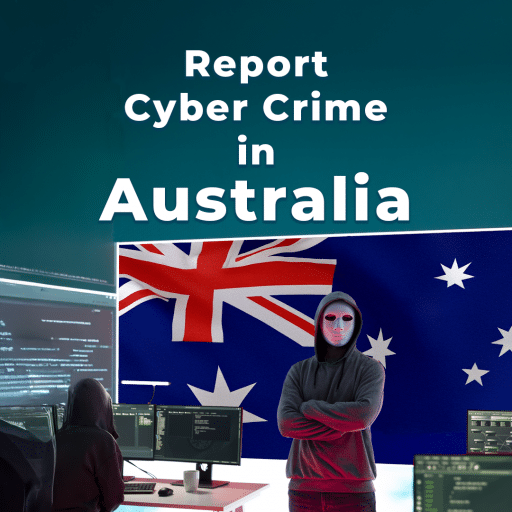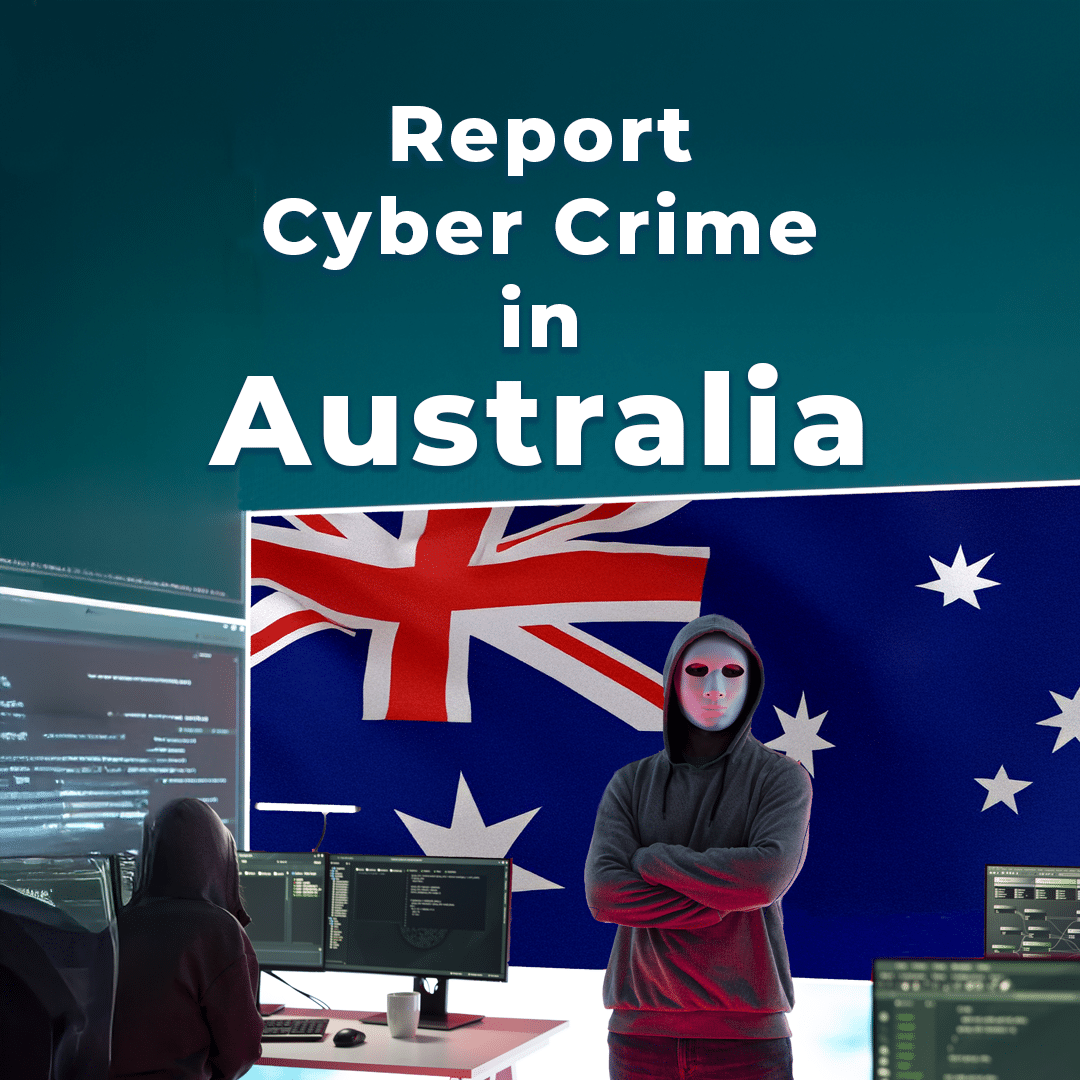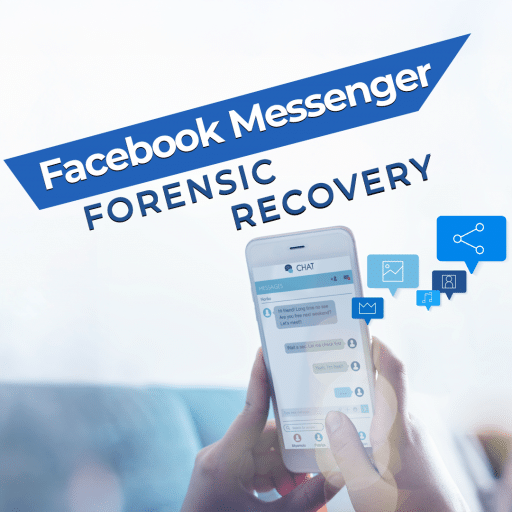Cybercrimes have become a pervasive issue in Australia (AU) and the list of their victims grows every year. According to a survey performed by The Australian Institute of Criminology, forty seven percent of their respondents were a victim of cybercrime in 2022(1). As Australian law enforcement began fighting back against cybercrime, the criminals adopted new, sophisticated tactics to avoid detection. Investment scams, for example, were reported to be doing the most harm to Australians in 2023 with over two billion dollars lost to them(2).
So, what is the best way to fight against cybercrime? The Australian government has launched multiple initiatives to combat this rise in online crime. However, the most significant initiative was the national push for citizens to report cybercrime in the AU to law enforcement.
Understanding Cybercrime in Australia
There has been a concerted effort by the Australian government to fight back against cybercrime. As an example, the AFP or Australian Federal Police estimated that it had prevented eighty-three million in losses to scams by targeting cybercriminals since 2020(3). However, a lot of work still needs to be done.
Common Types of Cybercrime
Criminals use many different tactics to target people online. The diversity of approaches makes it difficult to protect yourself. However, some cybercrimes are more effective than others and these are the types you see frequently over the internet. Here are the most common types of cybercrimes in Australia.
- Phishing scams. A method used by cybercriminals to deceive you into providing personal information. Posing as a legitimate organisation, the text message or email may contain a malware-infested link that you are encouraged to click. In reality, the link was made to steal information off your device. You would need a malware removal software to protect your information.
- Social media scams. Cybercriminals set up fake profiles on social media as a public figure, another user, or an organisation. Using the fake profiles, they will promote a suspicious product, request money from loved ones, or threaten extortion.
- Identity theft. This can be the result of many different types of scams. Identity theft is simply when someone uses your private information to gain a benefit.
- Account compromise. When criminals gain access to your email, bank, or other accounts online, this is called an account compromise.
- Malware. Malicious code that can be used to steal the information, install software, or encrypt the data for ransom on your device. Malware is typically distributed in deceptive ways like phishing scams. Malware removal is necessary to save your files and protect your information.
- Investment scams. Criminals impersonate investors or finance companies to present you with a huge investing opportunity. They make huge promises for life-changing money and add in urgency to apply pressure. When you try to withdraw your money from the investment, they refuse and you lose access to your own income. Investment scams are difficult to recover lost funds for.
- Cyber Extortion: Cyber extortion is a broad term encompassing online blackmail and romance scams in which criminals financially exploit victims. The specific threat used varies; for instance, sextortion involves demanding payment to prevent the release of sensitive personal content.
The Impact of Cybercrime
Most cybercrimes are financially-motivated. However, it can also be devastating to your mental health and reputation. Depending on what type of cybercrime you are facing, you can face immense stress and anxiety with the realisation that you are a victim. On top of emotional distress, you can also experience financial losses if the perpetrator accesses your bank information.
Reporting Cybercrime in AU: Resources for Adults
The threat of cybercrime has been prevalent since the early 2000s. There were two main challenges that Australian law enforcement faced when dealing with cybercrime: the complex jurisdictional application and a significant underreporting by victims. To address these issues and more, the Australian government created ReportCyber, a centralized network for the public to report cybercrime in the AU. This reporting system would be a source of information for the police and different agencies in the country.
Australian Cyber Security Centre (ACSC)
The ACSC is an organisation that has worked closely with government agencies like the AFP since 2014. Leading the charge on war against cybercrime, the ACSC also provides multiple resources for victims to use for free. The Australian Cyber Security Hotline, for example, is always available and will help victims in any way they can(4). The ACSC also has ReportCyber which is the national database of reporting cybercrime in the AU.
ReportCyber
ReportCyber was created by the ACSC to make monitoring and investigating cybercrime easier for law enforcement. Reports of cybercrime in the AU are passed to government agencies and law enforcement monitors the database to track the latest online crime trends. The Australian government recommends that all citizens report about online crimes through the ReportCyber website. However, there are three circumstances in which you shouldn’t report to law enforcement’s cybercrime database.
- A court order is already out against the suspect.
- A physical crime has been committed.
- A scammer contacted you through phone or email but no personal or financial information has occurred(5).
Australian Federal Police (AFP)
As Australia’s national policing agency, they have been proactive in targeting and investigating cybercrimes worldwide. The AFP have created multiple task forces that are taking the fight to scammers and crime syndicates, with a special focus on criminals using ransomware. It was reported that over 100 investigations were ongoing in 2024(6).
Australian Competition & Consumer Commission (ACCC)
The ACCC was created to ensure that businesses and individuals are complying with the competition and protection laws(7). The organisation created Scamwatch which is a reporting database for scams. The database is used to help those at the ACCC understand the most harmful scams and how they operate. They also share their information with the Australian government.
Unlike with ReportCyber, Scamwatch encourages reporting scams as well as scam attempts. However, in order to make a report, you must have the details, contact information, time, and screenshots related to the scam(8). Scamwatch is available 24/7 for anyone in the AU to report a scam.
Reporting Cybercrime in AU: Resources for Children
The internet is not a safe place, especially for minors. Cybercriminals often will target children because they are less familiar with the traditional scam tactics. Image-based sexual abuse and extortion has been a huge issue when it comes to minors in particular.
eSafety Commissioner
Established in 2015 by the Australian government, the eSafety Commissioner was created to protect minors from cyberbullying and to stop the online flow of child sexual abuse material (CSAM). The eSafety Commissioner strives to educate minors about the dangers of the internet. The organisation has a system for anyone to report instances of image-based sexual abuse, cyberbullying, or the online sharing of illegal content. The organisation is also constantly working to ensure that internet providers are taking the necessary steps to ensure a safer online experience(9). If you need to report a complaint to eSafety Commissioner, here’s how it works.
- Visit esafety.gov.au/report.
- Select “Report Now”.
- Choose the option that best fits your situation.
- Fill out the questionnaire with as many details.
Kids Helpline
This organization is Australia’s only free, confidential, and 24/7 counseling service aimed at young people from ages five to twenty-five. Kids Helpline has been providing free counseling services since 1991 and the counselors encourage their clients to discuss anything they want, including cyberbullying and other online issues. There are also educational resources on the website that dives in-depth into everything from bullying to sextortion.
Kids Helpline offers their services over the phone or through WebChat.
Steps After Reporting Cybercrime
Reporting to law enforcement or ReportCyber is an essential first step when you are a victim of a cybercrime. However, there is no telling how long it will take the authorities to reach out about your case. In the meantime, you need to take action to protect yourself online and prevent any further victimization.
- Change Passwords and Security. If you’ve experienced a breach, you need to strengthen your security. Use a strong new password and turn on two-factor authentication to keep your accounts protected.
- Monitor Accounts and Credit Score. Your credit card and bank account are the primary things to monitor if your information has been stolen. Any suspicious purchases need to be reported immediately so that you can attempt to recover lost funds as well as retain your finances and credit score.
- Seek Support. Talk to someone you trust about what you are going through. Dealing with a cyber attack is not easy and being able to discuss what you are experiencing can improve your emotional state.
- Data Recovery. If your device has been affected by malware, you need to act fast to protect your information and prevent any further damage to your files. Use a malware removal and data recovery software or service from cyber security professionals.

Potential Resolution and Outcomes
Unfortunately, a law enforcement investigation into a cybercrime can be lengthy. Sometimes, taking years for the case to get fully resolved. The investigation can end in many different ways with some outcomes more ideal than others. Here are a few possible outcomes of a cybercrime investigation.
Investigation and Prosecution
Many cybercrime investigations end with insufficient evidence because the identity or location of the culprit remained unknown. In other cases, criminals were charged under offences like harassment, fraud, and identity theft.
The state and territory laws can vary so it’s important to seek a legal professional if you are looking into your options. Depending on where you are in Australia, image-based sexual abuse could be brought into a criminal investigation. The three main factors that officers consider in an investigation is the severity of the abuse, for how long, the amount of evidence, and the location of the criminal(10).
Recovery of Data
Ransomware is a form of malware in which your device is infected by malicious software that lock and encrypts your files. The criminal responsible demands a ransom in exchange for data recovery of your information. After reporting to law enforcement, some local departments can help you with malware removal and data recovery without any need to pay the ransom.
Prevention and Education
Spreading awareness about cybercrime is the most effective way to fight against it. There are a lot of nonprofits and initiatives dedicated to helping victims. However, it’s also important to warn the people around you about the dangers in cybercrime and safe practices when going online.
Digital Forensics Corp: Supporting Australian Cyber Security
Cyber security is more important than ever in Australia and at Digital Forensics Corp., it’s our number one priority. We take a comprehensive approach to online security, providing a range of services from digital investigations to malware removal and cyber security consultations.
Our team of professionals focuses on three main things: prevention, protection, and response. We can give you the best practices to avoid common scams, reinforce the security on your accounts, and respond to any exposure of sensitive information. If you need to strengthen your cyber security, contact Digital Forensics Corp. today!
Resources and Support
Digital Forensics Corp. is available and ready to help you at anytime. However, there other free resources that can help with cybercrime. Here are a few organizations to check out.
- Crimestoppers: A not-for-profit information receiving service that allows Australians to report about unsolved crimes or suspicious activity anonymously(12).
- Lifeline Crisis: A national charity providing a 24/7 support service for Australians experiencing an emotional crisis(13).
- IDCare: A not-for-profit charity that addresses the national need for individuals and organisations to confront cyber security needs. They have professional cyber security case managers that listen to the issue and provide their best advice on how to handle the situation(14).
Get Help Today
Government agencies like the AFP can only investigate crimes that they are aware of which is why reporting is extremely important. When it comes to reporting cybercrimes in the AU, ReportCyber and Scamwatch are the main two websites you should remember.
For help reinforcing your cyber security and awareness of best practices to avoid becoming a victim to cybercrime in the first place. Stay vigilant, report cybercrime, and contact Digital Forensics Corp for expert cyber security support in Australia.
Sources:
- https://www.aic.gov.au/publications/sr/sr43
- https://www.accc.gov.au/media-release/scam-losses-decline-but-more-work-to-do-as-australians-lose-27-billion
- https://www.afp.gov.au/news-centre/media-release/afp-takes-fight-cybercriminals-2024
- https://www.cyber.gov.au/report-and-recover/where-get-help
- https://www.cyber.gov.au/report-and-recover/report
- https://www.brokersview.com/news/australian-federal-police-prevents-83-million-in-global-cybercrime-losses-since-2020-256172
- https://www.accc.gov.au/about-us
- https://portal.scamwatch.gov.au/report-a-scam/
- https://www.esafety.gov.au/about-us/what-we-do
- https://www.esafety.gov.au/key-topics/adult-cyber-abuse/police-legal-help
- https://crimestoppers.com.au/
- https://www.lifeline.org.au/
- https://www.idcare.org/
DISCLAIMER: THIS POST IS FOR INFORMATIONAL PURPOSES ONLY AND IS NOT TO BE CONSIDERED LEGAL ADVICE ON ANY SUBJECT MATTER. DIGITAL FORENSICS CORP. IS NOT A LAWFIRM AND DOES NOT PROVIDE LEGAL ADVICE OR SERVICES. By viewing posts, the reader understands there is no attorney-client relationship, the post should not be used as a substitute for legal advice from a licensed professional attorney, and readers are urged to consult their own legal counsel on any specific legal questions concerning a specific situation.







